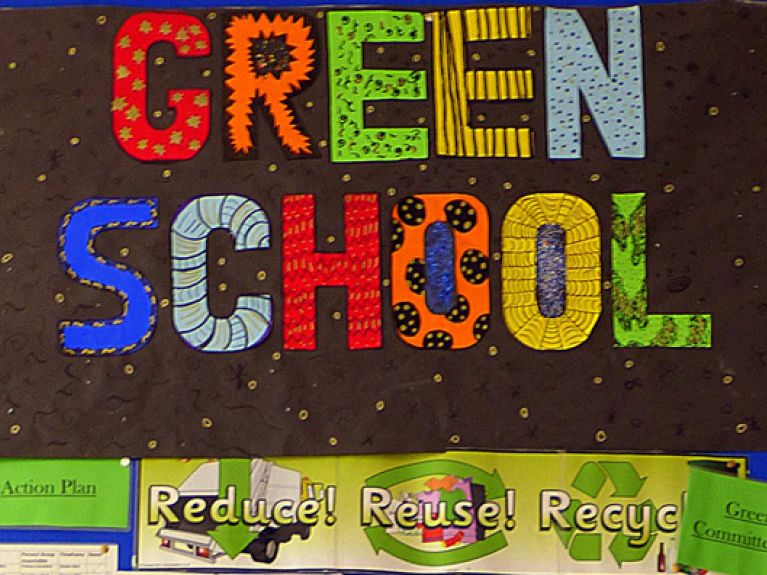German School in Dublin
Children from more than 15 countries learn together at St Kilian’s German School in Dublin – an interview with school principal Alice Lynch.

Ms Lynch, your school has been in existence for over 60 years. It was founded in 1952. Why did Ireland need a German School at that time?
During the Second World War German children experienced terrible things that left them deeply traumatised. Many of them lost their parents and they faced death from starvation. The Irish Red Cross brought more than 1,000 needy children from Germany and France to Ireland in what was known as Operation Shamrock. Irish host families took them in and gave them care and affection. Many of the children forgot their mother tongue. That’s why St Kilian’s German School was founded: to ensure the children did not forget their linguistic and cultural roots.
At first, during the period after its foundation, only German courses were offered. How did your institution become a proper school?
The courses were so popular that the idea developed of providing a complete education. The primary school first began teaching in 1954. Incidentally, in Ireland that involves years 1 to 6. Ten years later, the junior and senior cycles were opened. Today 56 teachers teach 647 students.
In addition to its focus on the German language, are there other areas in which your school differs from its Irish counterparts?
St Kilian’s imports education “made in Germany”. Personally, I primarily associate that with high quality. We have taken on the best features of the German education system. That begins with things like clothing and confession: our students do not wear school uniforms and belong to different religions. Neither is normal in Ireland. Equally unusual is a form of continuous assessment through class tests that we do not have in Ireland. One area in which we have entered entirely new territory in Ireland is educational quality management. We assess teaching and learning – that’s how we engage in continuous development.
Where does the expertise for this come from?
Largely from our teachers from Germany. The German government traditionally sends three teachers to our school and provides financial support. Our German teachers know from their native country how to analyse teaching and student achievement. Other Irish schools have meanwhile also recognised the great importance of this subject.
In addition to Irish and German students, you also teach children with 15 other nationalities. What else makes St Kilian’s a “school of encounter”?
In 2005 we founded the Eurocampus here with a French school in Dublin, the Lyceé Francais d’Irlande. We merged the lower years of the two schools and since then we have jointly prepared years 7 to 9 for the Junior Certificate, which is equivalent to the German Mittlere Reife. We have created a learning environment in which our students encounter other nations, cultures and languages. They learn to respect difference, which does not only apply to a person’s origin. As an inclusive school we also accept disabled children. And in our Green School project we teach our students how they can contribute to raising environmental awareness.
